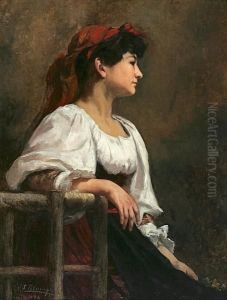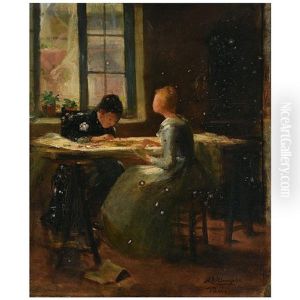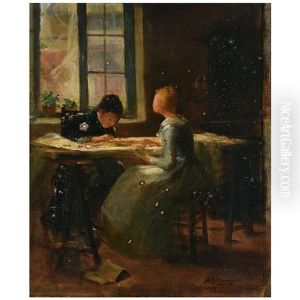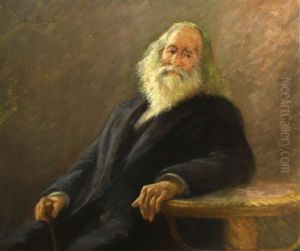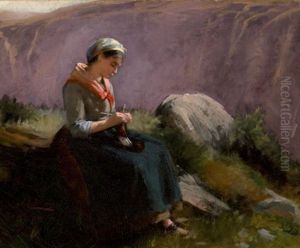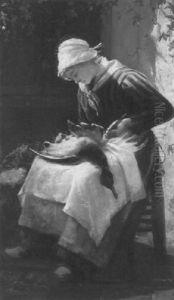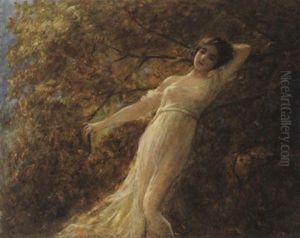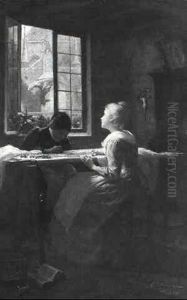Anna Elisabeth Klumpke Paintings
Anna Elisabeth Klumpke, born on October 28, 1856, in San Francisco, California, was an American portrait and genre painter who gained prominence in the late 19th and early 20th centuries. She was also known for her writings and her role in promoting women in the arts. Klumpke's family moved to Europe in 1871, where she received her education and pursued her artistic training, a move that exposed her to the vibrant art scenes of Paris and Munich.
Klumpke's early education took place in Switzerland and Germany, but it was in Paris, at the Académie Julian, where she truly found her calling. The Académie Julian was one of the few art institutions at the time that accepted female students, and it played a crucial role in shaping her artistic style and career. Klumpke was deeply influenced by the academic style of painting, which emphasized classical themes, precise technique, and a polished finish. Her dedication and talent were evident, and she received several honors and awards during her studies, including the prestigious Rosa Bonheur Prize, named after the famous French animalière and realist painter.
Throughout her career, Klumpke was known for her portraits and genre paintings, often depicting women and children in domestic settings. Her work was characterized by its detailed realism, sensitivity to her subjects, and subtle use of color. Klumpke was also an accomplished writer, authoring several articles and books on art and artists, including a notable biography of Rosa Bonheur, with whom she had a close personal and professional relationship. This relationship was significant, as Bonheur was one of the most famous female artists of the time, and her endorsement greatly helped Klumpke's career.
In addition to her painting and writing, Klumpke was an advocate for women in the arts. She was involved in various art organizations and worked tirelessly to promote the work of female artists. Her efforts contributed to the increasing recognition and acceptance of women in the art world, a legacy that has lasted well beyond her lifetime.
Anna Klumpke's death on February 9, 1942, marked the end of a prolific career that spanned over six decades. Her work remains in several public and private collections, and her life and achievements continue to inspire artists and advocates for gender equality in the arts.
